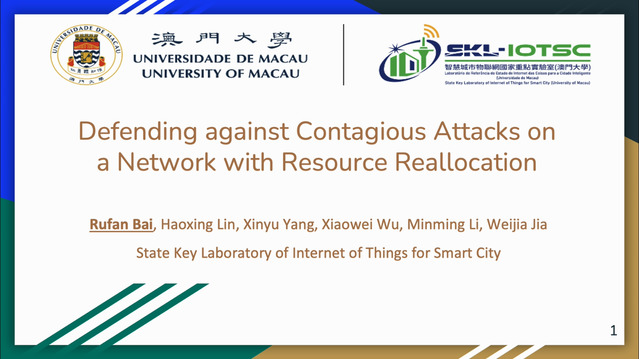Abstract:
With the proliferation of smart and connected mobile, wireless devices at the edge, Distributed Denial of Service (DDoS) attacks are increasing. Weak security, improper commissioning, and the fast, non-standardized growth of the IoT industry are the major contributors to the recent DDoS attacks, e.g., Mirai Botnet attack on Dyn and Memcached attack on GitHub. Similar to UDP/TCP flooding (common DDoS attack vector), request flooding attack is the primary DDoS vulnerability in the Named-Data Networking (NDN) architecture.In this paper, we propose PERSIA, a distributed request flooding prevention and mitigation framework for NDN-enabled ISPs, to ward-off attacks at the edge. PERSIA’s edge-centric attack prevention mechanism eliminates the possibility of successful attacks from malicious end hosts. In the presence of compromised infrastructure (routers), PERSIA dynamically deploys an in-network mitigation strategy to minimize the attack’s magnitude. Our experimentation demonstrates PERSIA’s resiliency and effectiveness in preventing and mitigating DDoS attacks while maintaining legitimate users’ quality of experience (> 99.92









































